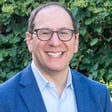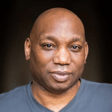
Episode 491: How Tracy Slater Broke Her Book into Steps
"Writing a book is so overwhelming. I need to have a book that's like so many steps in between. So what I do to manage my own anxiety and overwhelm about that is I'm really, really obsessed with breaking everything into little steps so that all I need to do is the next step and then I don't get overwhelmed," says Tracy Slater, author of Together in Manzanar.
It’s another Super Size Me CNFin’ Double Feature, Ep. 491 with Tracy Slater. She is the author of Together in Manzanar: The True Story of a Japanese Jewish Family in an American Concentration Camp. It’s published by Chicago Review Press.
As Tracy and I talk about in this podcast, this book is sadly of the moment. It happened 80-some years ago, this vile incarceration of Japanese immigrants and Japanese AMERICANS, 2/3rds of them were American citizens, rounded up and shipped to American concentration camps. Disgusting and disgraceful, but these are the histories we need to look dead in the eye, these are the histories THIS administration aims to erase so it's the work of historians, and journalists, and storytellers like Tracy to keep these stories alive.
She’s an American writer from Boston living for a bit in Toronto. Her essays and articles have been published in the New York Times, Wall Street Journal, The Boston Globe, Lit Hub, among other places. She’s also the author of the memoir The Good Shufu. In this conversation we talk about:
- How she broke up with her first agent
- How sadly of the moment Together in Manzanar is
- Being a white person writing this story and worrying of blind spots
- How she handled the overwhelm of it all
- And how the story chooses her
She also thanked me and the podcast in her acknowledgements, which is really sweet and made me feel good. As you know, CNFers, this podcast often feels pretty uni-directional, so to know it’s “working,” that it’s of use and helpful, that’s validating. You can learn more about tracy at tracyslater.com and follow her on Bluesky at tracyslater.bsky.social or on IG at at good_shufu. I don’t know about you, but I’m ready for this.
Newsletter: Rage Against the Algorithm
Show notes: brendanomeara.com



















